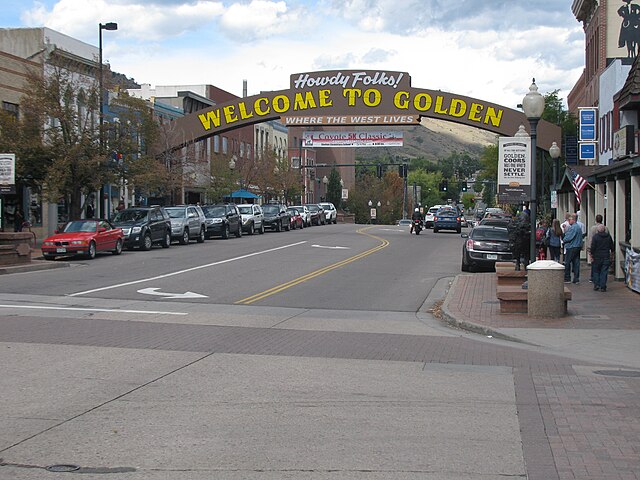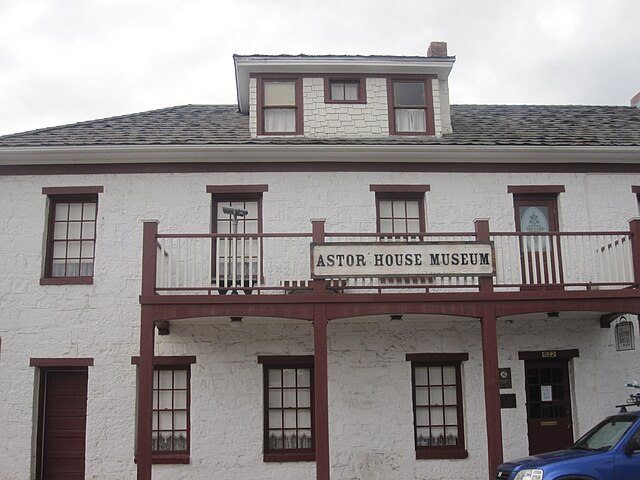William Austin Hamilton Loveland was a U.S. railroad entrepreneur and businessman in the late 19th century. An early resident of Golden when it was the capital of the Colorado Territory, he was one of the founders of the Colorado Central Railroad and a principal figure in the early history of Colorado. As president of the Colorado Central, he was instrumental in the expansion of the railroad network into the mining communities of Colorado. For much of the 1870s Loveland waged a fierce struggle with Union Pacific investors for control of the Colorado Central. He also served as Lieutenant Governor of Colorado.
William A. H. Loveland from a 19th-century engraving
Golden is a home rule city that is the county seat of Jefferson County, Colorado, United States. The city population was 20,399 at the 2020 United States Census. Golden lies along Clear Creek at the base of the Front Range of the Rocky Mountains. Founded during the Pike's Peak Gold Rush on June 16, 1859, the mining camp was originally named Golden City in honor of Thomas L. Golden. Golden City served as the capital of the provisional Territory of Jefferson from 1860 to 1861, and capital of the official Territory of Colorado from 1862 to 1867. In 1867, the territorial capital was moved about 12 miles (19 km) east to Denver City. Golden is now a part of the Denver–Aurora–Lakewood, CO Metropolitan Statistical Area and the Front Range Urban Corridor.
Downtown Golden, Colorado
Golden in 1868
The Astor House Museum, the first stone building in Golden, was a boarding and rooming house from 1867 to 1971.
The Denver Tramway at Golden depot, 1909





